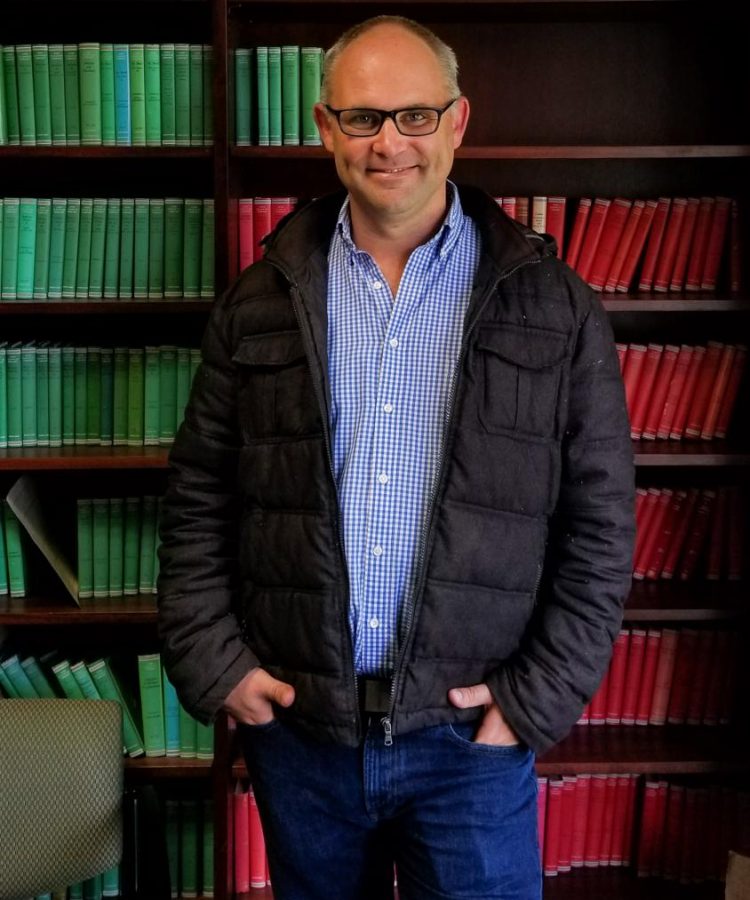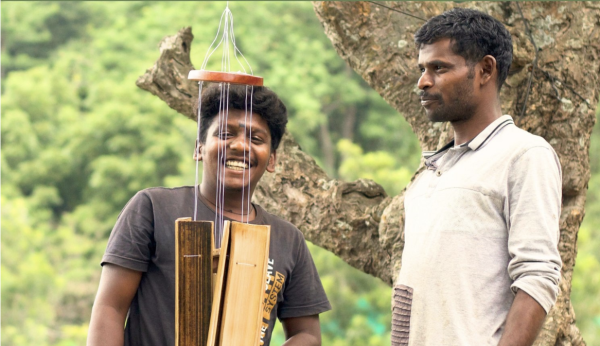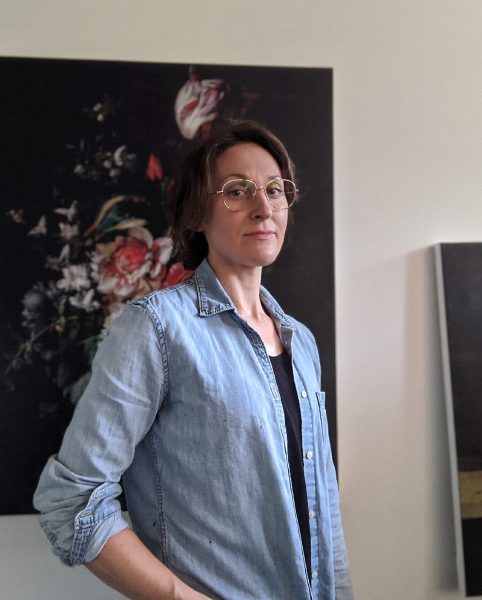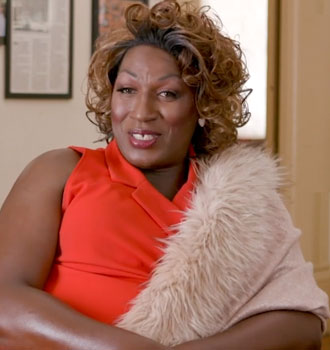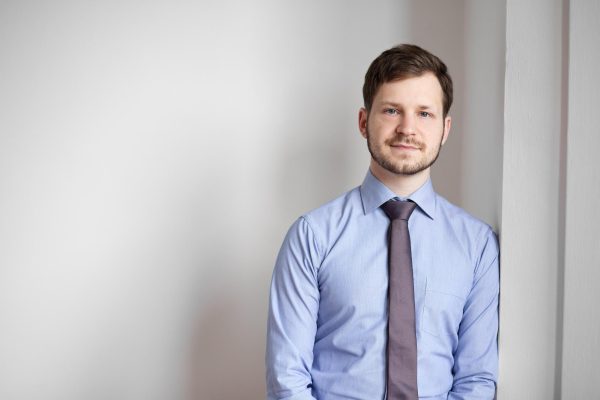On the Record with Steven Ellis
Professor Steven Ellis, Roman archaeologist
Roman archaeologist and professor Steven Ellis of the University of Cincinnati delivered four lectures on the university’s ongoing excavations of the Porta Stabia neighborhood at Pompeii, of which he is director, as part of the Martin Classical Lectures series. The lectures took place in the Craig Lecture Hall on Monday, Tuesday, Thursday, and today. Ellis has done fieldwork in Italy, Greece, Spain, Portugal, France, Morocco, and Algeria, and is the author of The Making of Pompeii: Studies in the History and Urban Development of an Ancient Town. Ellis has received grants and fellowships from the National Endowment for the Humanities, the Loeb Classical Library Foundation, and National Geographic. In 2012, he won the prestigious Rome Prize.
This interview has been edited for length and clarity.
What was it like gaining a foothold in the field of classics?
It’s kind of a loaded answer, because it’s a difficult one to talk about, if only because it’s a difficult field to break into. And I want to be clear: there’s a lot of privilege involved, and I recognize that. So, in my position as a white male from Australia, I had certain challenges to break in — as any academic does into their discipline — yet I didn’t have the challenges of others, of course, who would have a much harder time than me to break into the field. For me, I got in via Roman archaeology. So, I’m a Roman archaeologist. My education was at the University of Sydney; I did an undergraduate honors degree in Classical Archaeology and a Ph.D. at the same institution. Now that I’m a professor of classics in the United States, it’s interesting to think back on those days in Sydney, where our education system is so different. We are more likely to do all of our education at the one institution, whereas here in the United States we bounce all over the place. The whole idea is to get breadth, whereas there it was all about getting depth in a particular topic at a particular place.
My challenge was that when I finished my Ph.D., I had to find employment, and I found it in the United States. I was lucky because I got a job straightaway at the University of Michigan, and I was a visiting assistant professor there for a couple of years. After the two years, I got the job at Cincinnati.
How did that translate to your work in Pompeii?
I had an opportunity to go there as an undergraduate student on an excavation, and that was part of the love affair with a place like Pompeii. But I think the ultimate reason why I didn’t so much go to Pompeii in the first place, but the reason why I stayed there, was that I realized, looking back on those earlier years — on all those decisions and choices that I had maybe subconsciously made in those first years of a career — were because I am inherently fascinated by communities, networks, neighborhoods, and social relations. And in essence, that’s an element of society that is really reflected very well in the evidence from the Roman world. Romans had cities. For someone who’s interested in cities and organization, the Roman world is the perfect place to be. Now, I wouldn’t have articulated it that way 20 years ago. I wouldn’t have known it 20 years ago. I just knew that I was enjoying Roman archaeology, but I couldn’t put my finger on why I was leaning more towards the complexity of urban cultures from the Roman period than I was getting into, say, Greek archaeology or West Asian archaeology or any other archaeology, for that matter. It’s only now, looking back, I realize, “Ah, that’s what happened.”
What does it mean for you to dig the Porta Stabia in Pompeii?
So, the Porta Stabia neighborhood is essentially these two town blocks that are closest to this main gate that comes into the city from the south. What it means for me is an extraordinary opportunity, an unimaginable privilege to get at the livelihoods of a neighborhood of people who are otherwise entirely wiped from history. This is not another one of those large, handsomely-decorated houses in Pompeii that we’ve known so much about for the past 250 years. This is a neighborhood that had been ostensibly forgotten; a people who were not just forgotten but ignored. And so for me, I see it as a privilege not just to be able to work at such a large urban landscape, such a famous site as Pompeii, but we’re privileged to be able to get at the types of people who lived in this neighborhood, these so-called “sub-elites” who would otherwise be completely hidden from us. They had their stories. If that’s the privilege, then my expectation now is to be able to tell that story. And that’s my duty now — to be able to try to get at their livelihoods, try to get at understanding who they were, how they responded to each other, as well as to changes over time, over generations, in that neighborhood, and developments — social, political, economic, cultural developments. If I can understand that about this sub-elite neighborhood in Pompeii, then it’s not a matter of stretching that story over other sub-elite neighborhoods, but maybe promoting the idea of doing sub-elite studies at other urban sites like Pompeii.
What is the value of an archaeological story?
Archaeology is going through all sorts of changes right now because of the technical revolutions of the past 10 or 20 years, and certainly in the last few years. What we’re doing right now is really fetishizing the data. We’re fetishizing our ability to be able to collect it, record it, organize it, and store it. And these are all really important pursuits. But what’s easily lost in that is the story. I think what we have to work better at as a discipline is to not just do the fieldwork on an archaeological site for the benefit of the data itself, and the ongoing storage and accessibility to that data, but also to tell a story — why we dug it in the first place, what we learned from it ourselves. So for me, telling the story is the most crucial part of all of this. That’s not to take anything away from collecting, recording, storing, and making the data accessible, but that’s to say that that should just be par for the course. We shouldn’t be celebrating that, we should just be doing that. What we should really be celebrating is coming up with ideas, new ways of thinking, new outcomes, new conclusions. I think that’s what we should be championing a little more.
As you tell that story, there are some unavoidable dissonances between the modern day and the ancient world. What is the role of the concept of class when we think about telling a story about Pompeii? How has it been used, and how should it be used?
Class has been used fairly sloppily. It’s hard, because we have so many contemporary views on the ancient past, whether that contemporary view is right now in 2017, or whether that’s the way we looked at the past in the 1950s or the 1890s. It’s hard for us to look at the past without having the contemporary lens. So, I think that really dictates how we understand class. And it’s important to step out of our own society and try to see how all of this works.
Class is a very complicated topic to talk about, much less understand, because I’m not sure that we even understand our own class systems today, let alone those of 2,000 years ago in a Roman town. For me, I think one of the difficulties of the way we have been studying class is that we’ve been seeing lots of very binary divisions — binary divisions between the rich and the poor; the noble and the pleb; the haves and the have-nots — and not really appreciating, because they’re hard to understand and delineate, a texture across all the classes. Now, having complexity is great. It doesn’t mean we have to understand it, but it means we should try to appreciate it, and find new ways of engaging with the complexity of a class structure. Because at the end of the day, one of the veritable hallmarks of Roman society was that it was socially stratified. We know that. But that stratification is more than just the rich and the poor. It’s everything in between. So what I’ve been trying to do is to get at that, is to try to delineate that texture and to try to find ways of identifying the expression of class, and find ways of identifying the engagement between and among the classes as well. And not just from a top-down perspective, not just from a bottom-up perspective, but zooming back and forth.
With that complex ideological interplay happening on every level of archaeology, how do you simultaneously interrogate that while also making classics more accessible?
I think there is an accessibility there, because in spite of our wanting to see those binary divisions and the separations, this patchwork of class structures, we inherently have our own complexity and structure and texture within, say, modern American society. There should be a certain immediacy of understanding that they, too, could have had a more flexible, less rigid, and more complicated system than just a one-or-the-other system, because we have that. That’s where we can actually use our own understanding of class structure to appreciate an ancient, complicated class structure, rather than just using our own class structure to impose a current, modern ideology onto the past.
How has technology affected your work?
It’s changing so much. It’s also changing very, very quickly. There’s always technology in archaeology. Different scales, to be sure. But what we’re seeing now, in particular, is cheap, readily accessible, and easily-used technologies. So, 10 years ago, we used all sorts of machines that go ‘ping’ on archaeological sites, but only certain people could use them. Now, you can put the iPad in the hands of anyone, and they’ll know how to make the most of it on an archaeological project. So that’s one big thing that’s changing. I think it’s becoming simpler. Now, that all sounds great, but it’s actually not. There’s a flipside to that. The flipside is that because the use of technology in the field is becoming so much cheaper and so much simpler, and so much glossier, I think there’s a bit of a malaise in the way we are using the data in the end. I think we are getting caught up with the fact that we can use an iPad; we can get caught up with the fact that we can use a drone; we can get caught up with the fact that we can all have access to all that digital data, but we’re not necessarily using it to come up with new stories. We’re reaching satisfaction just with the recording of data digitally, not with the publishing of it and the publishing of our ideas from that data. I am all for exploring new ways of doing things, because I think there are all sorts of great new ways of doing things that we weren’t able to do five years ago or 50 years ago, but I wish we could do better at knowing what the end game is, knowing how many more steps there are to go before we can do our collective high-fives.
We end up still not telling the story. We’ve collected the data, and we can show it all — and it’s digital, and it’s shiny, and it’s in color, and you can share it. That’s great. These things are all great things. These are all important things to do, but they don’t constitute the job. They should be a step towards something rather than the destination itself.
In light of budget issues facing colleges across the country, what argument would you make for the continued existence of the classics in a liberal arts setting?
One of the great things about studying the classics is that we can still live in a world where we can study the classics. Too many times I hear justifications for the classics or for the study of history that were, “We need to understand the past if we’re going to understand the present and the future.” And that’s only a little bit true, I think. It’s almost too obvious for that to be an effective answer. And I don’t think it’s an answer that has helped us in any way in the past to survive as a classics department.
So, though I have a thousand answers in my head, I won’t pretend that any one of them is more important than the other. I don’t know how I would hierarchize them to answer this question, but one thing I would say is that it’s a horrifying question, because the alternative is a terrifying prospect. It’s unimaginable to think that we could live in a world where we didn’t and couldn’t study the classics. Not because of the value of the classics itself, but because of the value of studying. The value of learning.
That’s the value of studying the classics. It’s not because knowing what happened in ancient Rome or ancient Greece is going to change something in the administration of the university, or much less the administration of the country. It’s that the idea of learning about something else about another people in another time should be one of the absolute fundamental — not just desires, but needs — of a culture, of a society. I love studying classics simply because I still can. And we still can.


